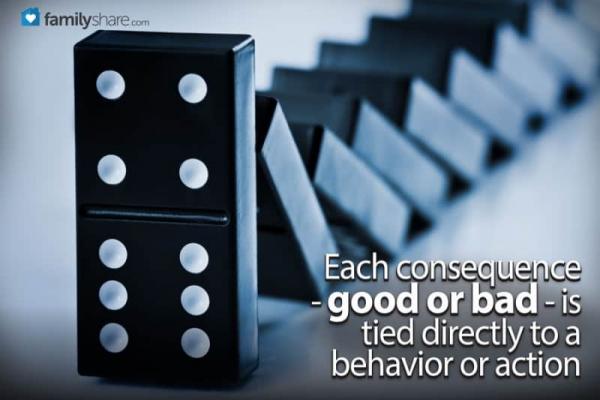
How often have you heard the cautionary tale that rewards shouldn't be used as motivation to change your child's behavior? Such advice seems commonplace, and yet rewards - and punishments - are frequently tied directly to behavior.
For example, try misbehaving at work and see how long it takes for the paycheck to stop. Our schools routinely reward or punish behavior. With religion, it's easy. Do good, go to heaven. Do bad, go to hell. This basically applies for everything in life. If you get caught exceeding the speed limit, you get a ticket. When you pay the mortgage, you get to keep the house. If your daily diet consists of eating junk food, you will gain weight.
In these examples, each consequence - good or bad - ties directly to a behavior or action. This really does seem to be how the world works.
Of course, rewarding good behavior isn't risk-free. Children can form misplaced associations, unreasonable expectations, and even misinterpret the reward. All of these behaviors are unwanted, which convinces many people to move past reward systems without giving them a second thought.
My wife and I have had numerous conversations about how we can help our 7-year-old make better choices. Naturally, the idea of a reward system came up, and we immediately dismissed it as "bad."
However, as we talked about the "supposed dangers" of rewarding good behavior, I pointed out that our daughter's school uses a reward system to great effect. When her teacher notices good behavior, she writes what amounts to a thank-you note that says what she did correctly. Eventually, the notes add up to a certain amount. When this happens, the student gets a small prize. A classic reward system.
Is such a system the best way? Does it really create the proper connections and long-term behavior you're trying to establish? Do reward systems work to improve a child's behavior? What do you think?

